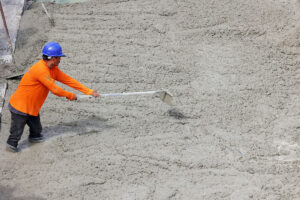
143 PPP projects in the pipeline — NEDA
THE GOVERNMENT has 143 public-private partnership (PPP) projects valued at P3.095 trillion in the pipeline as of July, with new projects centered on health and waste management, the National Economic and Development Authority (NEDA) said.
“The number of pipeline projects has grown over these past few months. As of early July, we have 205 PPP projects, including those in local government units, under implementation and 143 projects in the pipeline,” NEDA Secretary Arsenio M. Balisacan was quoted as saying in a statement.
Nine PPP projects amounting to P65 billion were added to the pipeline as of July.
“We are also encouraged to note that more and more social infrastructure projects in health, water and sanitation, as well as solid waste management, are in the pipeline,” Mr. Balisacan added.
The National Government leans on support from the private sector in shouldering its budgetary and infrastructure project implementation shortfalls. It has passed several policies over the past months that seek to create an enabling environment for infrastructure development.
Republic Act No. 11966 or the PPP Code, which took effect in December last year, sought to increase private sector participation in financing, operating, and maintaining infrastructure projects.
Under the Marcos administration’s “Build Better More” program, the government has 185 infrastructure flagship projects (IFP) valued at P9.54 trillion in the pipeline.
Mr. Balisacan also said that 63 IFPs, including the Pasig-Marikina River channel improvement project, Central Luzon Link Expressway, and the Panguil Bay Bridge project, are currently underway.
The NEDA chief said 31 more IFPs have been approved for implementation, six are awaiting government approval, and 82 are in the preparation stage.
The government’s move to allow full foreign ownership in renewable energy projects as well as public utilities like telecommunications, domestic shipping, railways, subways, airlines, expressways, tollways and airports, is expected to increase foreign investments in infrastructure, Mr. Balisacan said.
To fast-track implementation of infrastructure projects, the NEDA chief said there is a need to streamline and enhance processes and speed up the acquisition of right of way.
In April, President Ferdinand R. Marcos, Jr. also signed Executive Order (EO) No. 59 to fast-track the processing of permits for infrastructure flagship projects.
“By expanding and upgrading our infrastructure, we aim to create enabling conditions for high-quality job creation for millions of Filipinos, raise the competitiveness of our local industries, diversify our growth drivers to strengthen economic resilience, and enhance regional connectivity by linking our leading and lagging regions,” Mr. Balisacan said.
Terry L. Ridon, a public investment analyst and convenor of think tank InfraWatch PH, said the pace of implementation of IFPs would depend on government agencies.
“With legislation and policy frameworks in place, faster infrastructure development will now be determined by capable leadership of infrastructure agencies,” he said in a Viber message.
“This leadership has not been apparent in the Transportation department with only one concluded PPP (Ninoy Aquino International Airport rehabilitation) by the President’s State of the Nation Address (in July.) The public is still waiting for its urgent action on the EDSA (Epifanio de los Santos Avenue) busway and MRT-3 (Metro Rail Transit Line 3) PPPs.”
In May, the PPP Center said that its evaluation of Megawide Construction Corp.’s unsolicited proposal for the EDSA busway system is nearing completion.
The Department of Transportation also said it is reviewing the terms of reference for the auction of MRT-3’s operations and maintenance contract by the first quarter of 2025.
Rizal Commercial Banking Corp. Chief Economist Michael L. Ricafort said the government has implemented several measures, including the establishment of “green lanes,” to attract more investors in the Philippines.
As of June 20, around P2.32 trillion worth of projects, mostly in renewable energy, have been approved to go through the “green lane” system, the Board of Investments said earlier.
The government, through EO No. 18, established the “green lane” in all government agencies to speed up the approval and registration process for priority or strategic investments. — B.M.D.Cruz



